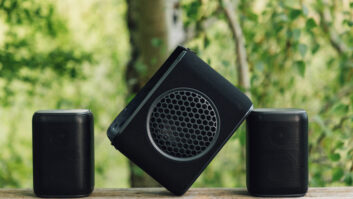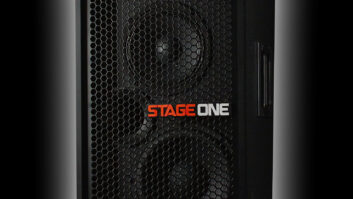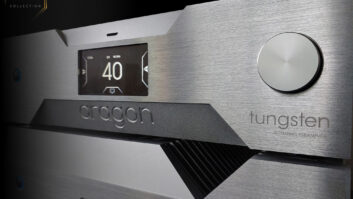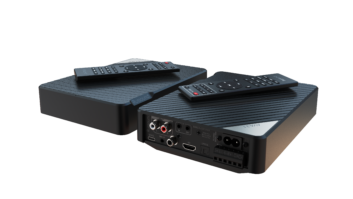Computer and consumer electronics suppliers went to Comdex to unveil Internet audio portables intended to reduce consumer confusion by supporting multiple compression codecs and multiple digital rights management (DRM) technologies.
Many of the new devices will be compliant with the Phase I specifications of the Secure Digital Music Initiative (SDMI), which in early November wrapped up the spec by agreeing to watermark-technology licensing terms (see below). The displayed SDMI-compliant devices, however, won’t be available until January at the earliest.
Companies launching products that support multiple codecs include Diamond Multimedia, Sony’s Personal Network Solutions Company and I-Jam Multimedia. In addition, e.Digital unveiled a reference design for a multi-codec, multi-DRM device that it would make available on an OEM basis to consumer product suppliers.
During the event, Sony said its first two digital portables-the Memory Stick Walkman and the Vaio Music Clip-might support the DRM technologies in Microsoft’s Windows Media Audio (WMA) standard and in files downloaded from Web sites that use IBM’s Electronic Music Management System (EMMS).
The devices also feature Sony’s Magic Gate and Open Magic Gate DRM technology. IBM and Sony have agreed to make their DRM technologies interoperable, as did Sony and Microsoft, the companies said.
In a related announcement, IBM said its EMMS music-distribution system for Web sites will be upgraded to support uploads of music encoded in Sony’s ATRAC3 compressed-audio format. Delivering files in ATRAC3 will optimize playback on portables, including the previously announced Memory Stick Walkman, that store ATRAC3 files for playback.
In its third-generation Rio portable, Diamond Multimedia expanded its repertoire of codecs by adding playback of Windows Media Audio files.
Like the second-generation Ri0 500, the new model will also play back MP3, MPEG 2.5, Audible’s G.723 and ADPCM files. The new model will also add WMA’s DRM technology to Intertrust’s Metatrust DRM technology.
The device will be “SDMI-capable.” Details such as pricing and ship dates were unavailable.
For its part, Sony’s Personal Network Solutions Company entered the portable market with plans for January shipments of its SDMI-compliant Music Clip, which will incorporate 64MB of embedded flash memory at an estimated street price of $299.
The cylinder-shaped 4.7 x 0.9 x 0.9-inch Music Clip comes with USB connection to transfer an hour of music from a PC to the device in about three minutes. A single AA alkaline battery delivers about five hours of playback time.
The device differs in several ways from the SDMI-compliant Memory Stick Walkman that Sony’s audio group plans to ship in January at a suggested $399. The Music Clip, for example, plays back files in either the MP3 format or Sony’s proprietary ATRAC3 format. The Walkman, on the other hand, stores files in its removable memory only in ATRAC3, although its supplied PC software transcodes MP3 files to ATRAC3 files before they’re transferred to the portable.
Sony sees a single-codec memory card as useful for Walkman users who want to swap cards and be assured the music will play back in their model.
Supplied memory also differentiates the two devices. Although both devices come with 64MB of memory, for example, the Clip’s memory is embedded, whereas the Walkman uses a removable Memory Stick.
Both devices, on the other hand, will support additional codecs, but in different ways. The Clip itself is software-upgradable to play back other codecs that Sony might choose to support in the future. The Walkman itself is designed only to play back ATRAC3, but future PC transcoding software will have the capability to transcode additional codecs other than MP3 to ATRAC3.
I-Jam Multimedia also built multiple-codec support into three new portables, all of which are SDMI-compliant portables and will ship in the second quarter.
All use removable memory, don’t feature embedded memory, and come with a card-docking station with parallel and USB ports, the latter for compatibility with PCs and Macs.
The IJ-200 will play multiple formats, initially MP3 and Windows Media Audio, residing on the same Compact Flash memory card. Sometime in the second half, I-Jam will offer software to support other codecs, which haven’t been determined.
At a suggested $279, the IJ-200 also features FM radio, voice recording, built-in speaker, support of Type I and II Compact Flash cards, support for a 350MB micro hard drive, optional SRS 3-D sound, and eight hours of playback on two AAA alkalines.
Like two existing I-Jam portables, the other two new models play only MP3 files. They are the IJ-100V and the IJ-50C at suggested retails of $179 and $129, respectively.
The 100V comes with bundled 32MB Smart Media card, voice recorder, speaker, and parallel-port connection. The 50C lacks voice recorder, adds FM radio, uses Type I Compact Flash cards and delivers eight hours of operation on two AAA alkalines.













